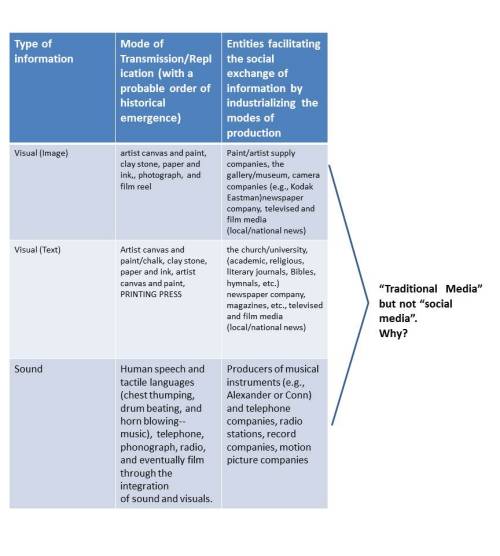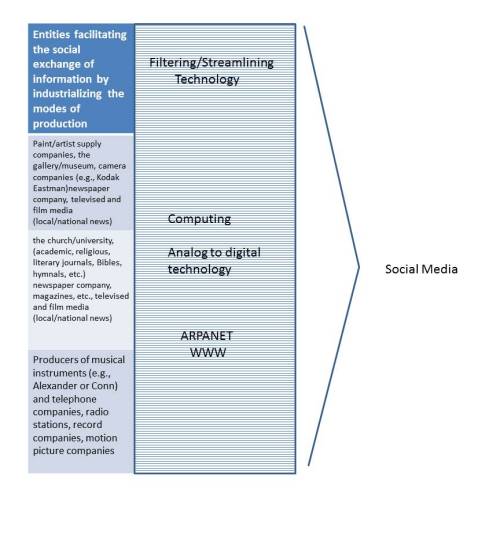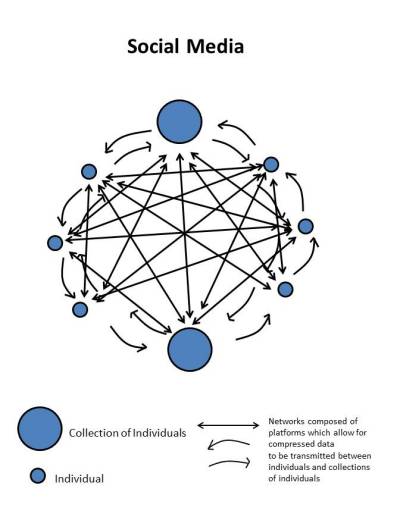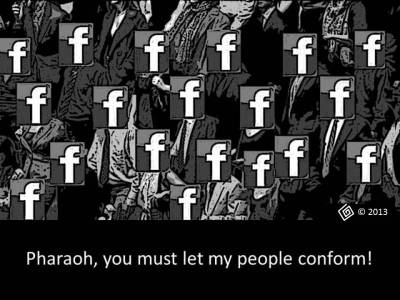(Swans - October 21, 2013) I've discussed before in a past article, albeit briefly, some of the issues concerning the conception of what the mainstream media refers to as "social media." These media, examples of which are Facebook, Twitter, YouTube, Instagram, and so forth, are online platforms in which atomic users can exchange information with each other: often, very personal information since there still exists the belief among Internet users that the information they share is largely private and therefore "safe." In these forums we see the likes of Johnny Frat-child elevating for a keg-stand at the most recent game-day tailgate, a cousin's entire album's worth of wedding pictures, or photos from the neighbor's most recent trip to an Amsterdam (ahem) coffee shop. It is perhaps naïve to think that online privacy still exists in this draconian age of FISA, the NSA, warrantless wiretaps, and indefinite detentions without charge but for many political analysts, 9/11, as well as the likes of Newton, CT, have necessitated the unwarranted surveillance of ordinary citizens carrying out their daily livelihood, and thus one careless remark made in the arena of "social media," for example, a fantasy about "hosing down a school," can draw the attention of law enforcement pretty quickly, even though you might have meant ferrying a water hose to school to spray water upon unsuspecting classmates. Yet the main idea behind "social media" is that it is a forum in which people can exchange information freely with each other, online and instantaneously, while also influencing "traditional media" as well as passing along information from traditional media that does not actually require a television, radio, newspaper, or magazine (printing press), or even telephone: the old technologies upon which "traditional media" was built. I can draw up a partial schematic here to show the relationship of traditional media in a way that should be straightforward, although there are some overlaps in terms of what corporate media entities now handle which particular vehicles of information transfer:

So why do television, radio, print journalism, etc., all fall under the term "traditional media" and not "social media"? The distinction is not valid because although the flow and character of information can be mono-directional, it is still "social" if we mean that humans inevitably are the ones who are responsible for conveying the information that emerges through those modes of knowledge and/or information production and transmission. What I mean here as "mono-directional" is that in the cases of the traditional media, it is often thought that corporations and not viewers control the character and flow of the information they convey; hence, there is nothing that is "social" about this form of information transfer. This is perhaps a false assumption in terms of the degree of control: obviously, viewers can tune out and cost "traditional media" its money if they feel that they have presented the public inappropriate information. So it is not the case that traditional media is entirely mono-directional. Viewers or subscribers can obviously affect what types of information they are presented with or affect the manner in which that information is presented. Also, traditional media is social media inasmuch as the information provided through traditional media inevitably pertains to human concerns, human aspirations, and human interests.
Now that I've tidied that all up, it is time to explore what "social media" is in terms of the above chart and how the emergence of the internet and digital technologies have transformed "traditional media":

The step to digital technology was a necessary one, simply because of the issue of storing data in physical space. Our libraries would overflow with books, our file cabinets with documents. Digital technology allowed for data to be compressed into numerical sequences to take up much less physical space. Electronic communications, which bloomed with ARPANET in the 1950s and '60s, was incredibly an artifact of Cold War hysteria: for if telephone and television networks were disrupted by a nuclear attack, electronic communications among military officials would be an alternative means of coordinating a military response. Once such a network was established and once a system of data compression could be integrated into it, we derived a system by which compressed data (e.g., musical scores, video, audio, etc.) could be transferred (via electronic file) anywhere; but in addition to that, incorporating audio visual devices into the computing unit could allow us to transmit representations of our bodies in virtual space in real time. Technologies such as Skype are examples in which live representations of the human body can be transferred worldwide in seemingly real time. I know that I have simplified the progression significantly here; obviously the telephone was transformed through digitization, which helped facilitate the emergence of social media platforms by allowing cellular users to access computer networks and therefore social media platforms. What is important to remember now is that "traditional media" is now inextricably linked to social media: Channel Two news can obviously send you a cellular weather update for the 5 o'clock rush hour, something we didn't have twenty years ago.
The Social Media Network

In this scenario, corporations, businesses, universities, governments, etc., can communicate across social media platforms directly in real time and transfer among each other compressed information of the old media (e.g., video, printed documents, etc.).
So why "social media"?
The terminology seems flawed, for it begs the question: Is traditional media less social or unsocial? That certainly cannot be the case. I can send a letter to my congressman about a bill that I want him to vote for or reject but the letter is no less "social" than a Facebook chat message with him. Because information is not digital does not make it less social, after all, the letter is a form of human communication too.
I think the reader can spot what I am doing in image three in trying to provide a representation of "social media." Individuals and collections of individuals are represented as nodes or points along an indefinite grid that are "connected" by the machinery of digital networks. But how "social" is a network in which everyone is a node, where a "friend" is simply a complex of compressed data that he or she transmits to you or your computer?
And how "social" is social media when in checking your Facebook messages, you ignore everyone around you? I have always found it disconcerting that when I am on the subway, the first thing that people do, in unison, when they step into my subway car is to check their cellular device for Facebook messages or text messages and remain religiously transfixed by their handheld device (as if it was Christ himself) until it is time for them to go. A personal Jesus of circuits and electrical impulses!
Is "social media" really some incentive for groupthink or social conformity?

Well, if Moses was around today, along with the Pharaoh, I am almost certain that any disagreement Moses had with the Pharaoh would not bring the Israelites any closer to freedom if they had sought to resolve their disagreement via Twitter. Nevertheless, I think we need to take a closer look not only the inherent contradictions in the term "social media," but consider how these platforms affect human behavior and make us less social.
And the most obvious problem with social media is that it is an advertisement repository -- you might be able to ad-block Coca-Cola but if your friend list is large, your "friends" might spam you with their minute-by-minute life updates. How "social" is that?
Please consider making a donation to Swans.
Legalese
Feel free to insert a link to this work on your Web site or to disseminate its URL on your favorite lists, quoting the first paragraph or providing a summary. However, DO NOT steal, scavenge, or repost this work on the Web or any electronic media. Inlining, mirroring, and framing are expressly prohibited. Pulp re-publishing is welcome -- please contact the publisher. This material is copyrighted, © Harvey E. Whitney, Jr. 2013. All rights reserved.
Have your say
Do you wish to share your opinion? We invite your comments. E-mail the Editor. Please include your full name, address and phone number (the city, state/country where you reside is paramount information). When/if we publish your opinion we will only include your name, city, state, and country.
About the Author
Harvey E. Whitney, Jr. is a doctoral candidate in history at Florida State University and teaches medieval and modern global history at Howard Community College in Maryland. To learn more, please visit his Web site at http://hewhitney.com/. (back)
